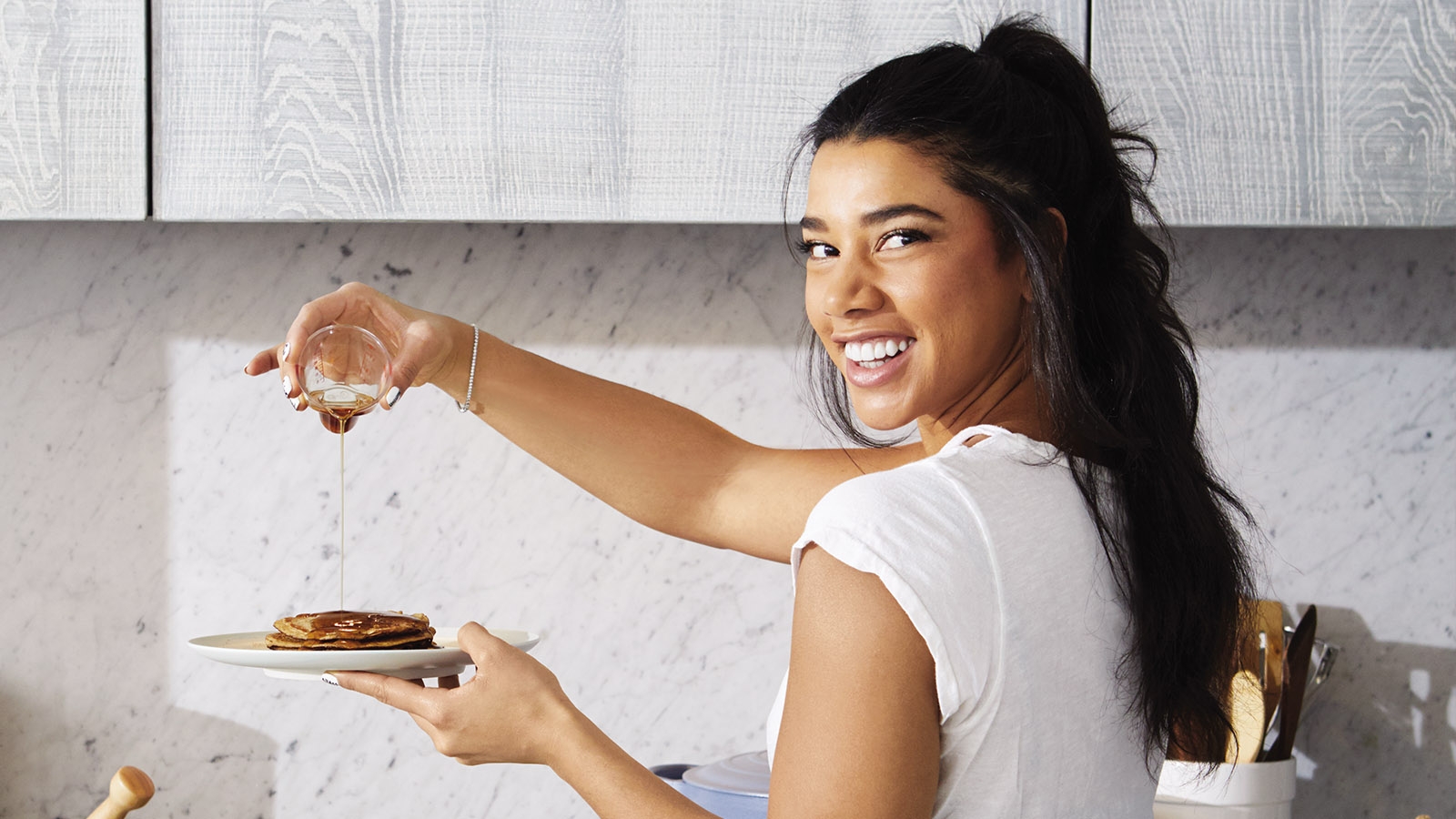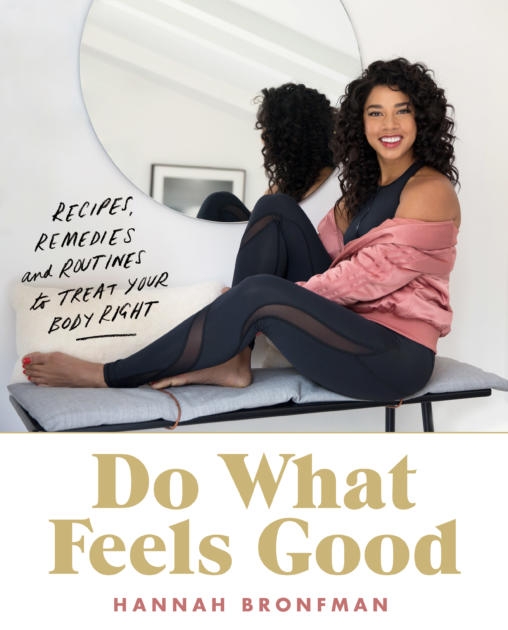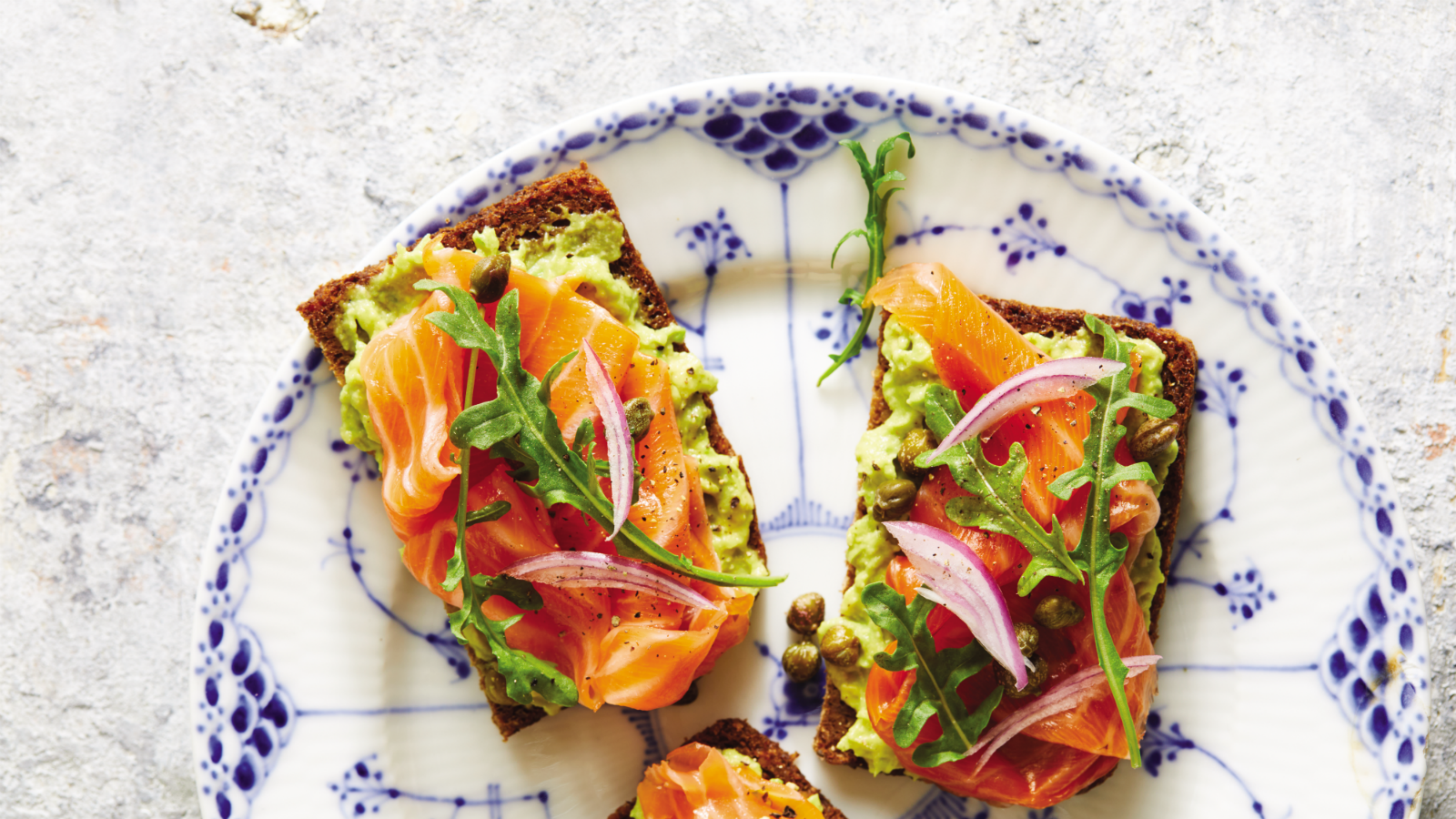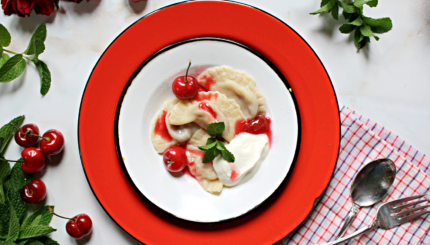Hannah Bronfman, the 31-year-old author and entrepreneur, loves gefilte fish. Yes, seriously.
“Maybe it started out as trying to be a goody two-shoes,” Bronfman tells the Nosher, reminiscing on her family’s Passover seders, “but I always remember being the one kid at the table who just ate all of the gefilte fish, and everyone was always talking about how I would [always] eat all the gefilte fish.”
Her other favorite Jewish food? Haroset, another Passover staple, that Bronfman’s grandfather used to make from scratch. While his haroset recipe unfortunately is not in her new book, there’s no shortage of reflections on her Jewish identity.
Do What Feels Good: Recipes, Remedies, and Routines to Treat Your Body Right is Bronfman’s first book. Divided into three parts (“Body,” “Food,” and, “Life”), it’s part cookbook, part wellness how-to, part memoir — and all Hannah.
The Nosher celebrates the traditions and recipes that have brought Jews together for centuries. Donate today to keep The Nosher's stories and recipes accessible to all.
The biggest challenge for Bronfman in writing the book was “to go into such great detail about things that are second nature” for her. In writing Do What Feels Good, Bronfman hopes people will realize how accessible wellness can be. “I feel like the world of wellness has been marketed in such a crazy way in the last seven years — and wellness doesn’t mean boutique fitness classes and organic food bought at Whole Foods! It’s really about the in-between moments; the way you talk to yourself, the things that you do for yourself, and cooking for yourself — whether that’s organic or not, whatever you can afford — it’s just an understanding of how to take care of yourself in a more meaningful, more mindful way.”
The whole book is meant to be a way to live healthily. Which doesn’t just mean eating healthy. It means treating yourself kindly and finding routines that fit your life. And in reading Do What Feels Good, you learn about Bronfman’s personal journey into the wellness world and figuring out her identity.
“The whole journey of identity is so different for everyone,” she explains, “but it’s still a journey that we all go on.” This is why Bronfman wanted to share things that happened to her, that she overcame, and things that took her a while to figure out.
This includes diving into her own personal history. On the second page of the introduction, Bronfman writes, “When I was growing up in New York City as a young, black, Jewish woman and going to ballet school, I spent a lot of time trying to understand why I didn’t look like everyone else around me or why I was expected to.”
How did she navigate those identities?
“Growing up in NYC from a prominent Jewish family, with a very strong black mother who grew up during segregation in the south side of Chicago from a middle-class family,” Bronfman explains, “from a young age, I was very aware of both of these sides of myself. It can be challenging being mixed, especially in the 90s and 2000s — obviously now as well — but as a young girl, trying to figure out your identity and it being a little more complicated than most…” She trails off, soon adding, “I won’t say it was hard, and I won’t say it was easy.” That prominent Jewish family is the none other than the Bronfman family — Hannah is the daughter of actress Sherry Brewer and former Warner Group CEO Edgar Bronfman Jr.
Despite the challenges, Bronfman has always been proud of being black and Jewish.
“I was always very proud of my Jewish heritage. I knew from a young age that I wanted to have a bat mitzvah, I also knew from a young age, that this was very different from how my mother grew up. She really wanted me to own both sides. My mom was a very confident woman herself, and so she definitely instilled a lot of that in me.”
View this post on Instagram
Her family isn’t surprised by her journey into the world of wellness. They’re “actually quite sarcastic and funny” about Do What Feels Good, teasing her that they hope the recipes are good.
Why? Because of a raw carrot cake she made for her grandfather’s shiva.
Seriously.
“I’ll never forget, I made a raw carrot cake for my grandfather’s shiva, and it was terrible. It was six years ago, and I was really just trying out and starting things.” Even now, her uncle jokes about her recipes, “I hope nothing tastes like the carrot cake you brought to shiva!”
One member of her family — her grandma, Ann — is actually the reason she began on her wellness journey. Do What Feels Good is dedicated to her: “I want to dedicate this book and the findings of this process to my Granny Ann whose struggle, perseverance, and resilience inspire me every day.”
She felt like it was “extremely important” to include her grandma’s struggle with anorexia in her book. In the first chapter, she writes about her grandmother; how she “was a German Jew who was very fair-skinned,” and how growing up, she was very conscious that they didn’t look alike. As she grew up, she learned her grandmother struggled with anorexia.
“I felt like it was extremely important to include her story of how deeply it impacted me personally, but also because I know how many women struggled with this. I just wanted them to know — even though I personally haven’t struggled with that particular eating disorder, or any eating disorder in general — I was a family member of someone who did. And that is very, very challenging,” Bronfman says.
“I feel like a lot of people who follow me now might not know” about her grandmother, she explained. “I just felt like it was a really important thing to talk about how that was a huge turning point in my life, that’s why I even decided to take my health seriously.”
For someone who shares so much of her life — on her personal Instagram, and her website, HBFIT, her grandmother’s struggle is not a story she brings up often.
Speaking of Instagram, if you’re one of her 500,000+ followers, you get a pretty intimate glimpse into her life. You’re there with her at her workouts, when she travels, and when she’s trying new foods. (“I’ve kinda been known over the years for being the ‘guinea pig’ and definitely talking a lot about the things I’m trying and doing, whether they’ve worked or haven’t worked.”)
But like any social media feed, it’s also carefully curated. Which comes as “second nature” for her now. “I think about the type of content that would be engaging, the types of things people want to see from me, and it’s a balancing act between my personal life, my life with my husband, things that I’m personally trying. And so I think it’s a mix — between all that content, and cooking, and beauty, and then I DJ, so there’s that — so, it’s kind of like, there’s a lot of different buckets, which kind of makes it almost a little bit easier for me to show a lot.”
Her favorite people to follow? Off the top of her head, she says bloggers Valeria Lipovetsky, Melissa Wood, and Marianna Hewitt.
“I literally follow 1,600 people, which is crazy. My husband’s always like, ‘I don’t even understand the point! You can’t even see everyone!'”
She hopes her followers, and anyone who reads Do What Feels Good, take away “a little bit more understanding of themselves.”
“I hope that they’ve found a little bit more truth in themselves. And, honestly, just not to take this whole world to an extreme, but to take it seriously. At the core of our everything — our longevity and our happiness — really is our health, and I think so many of us take it for granted. Really, it shouldn’t be a privilege.”
Make sure to check out Hannah’s recipe for Avocado Smoked Salmon Toast.





